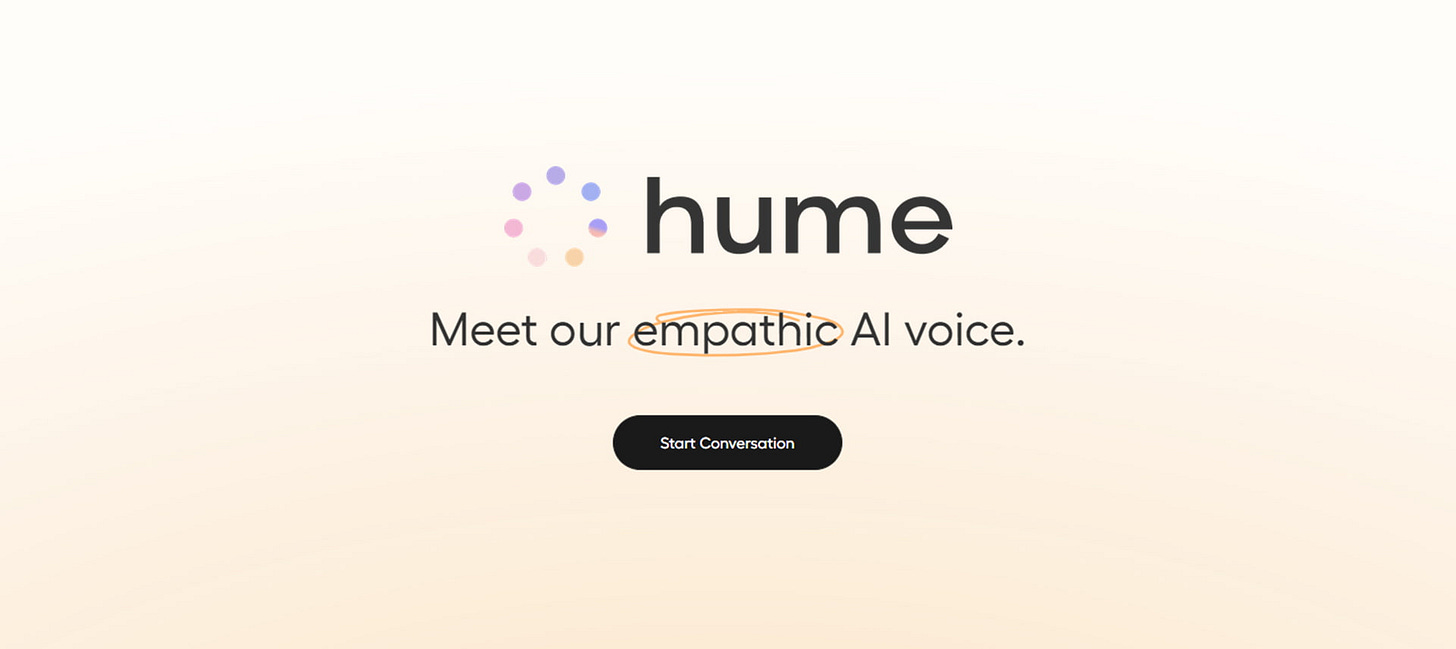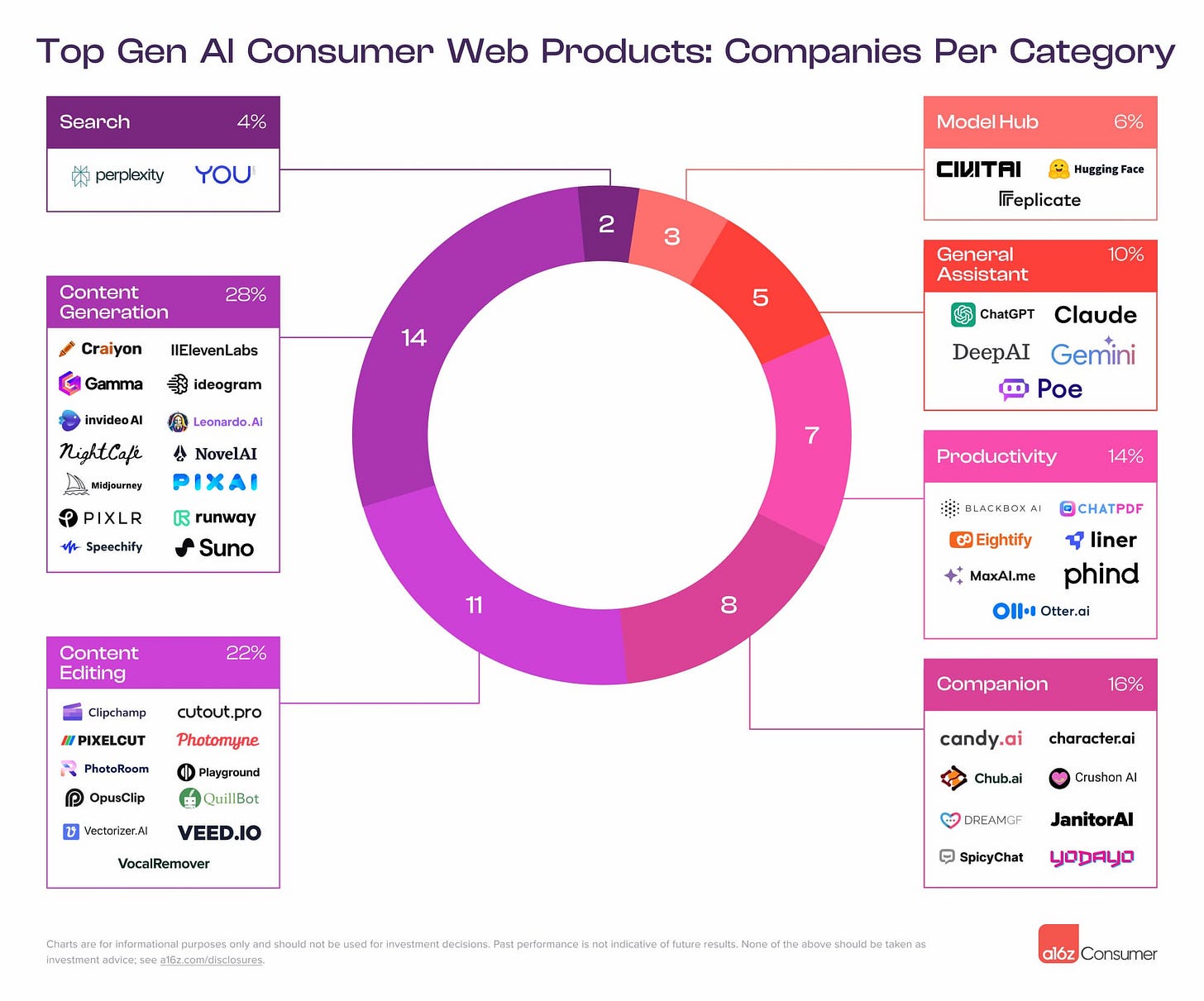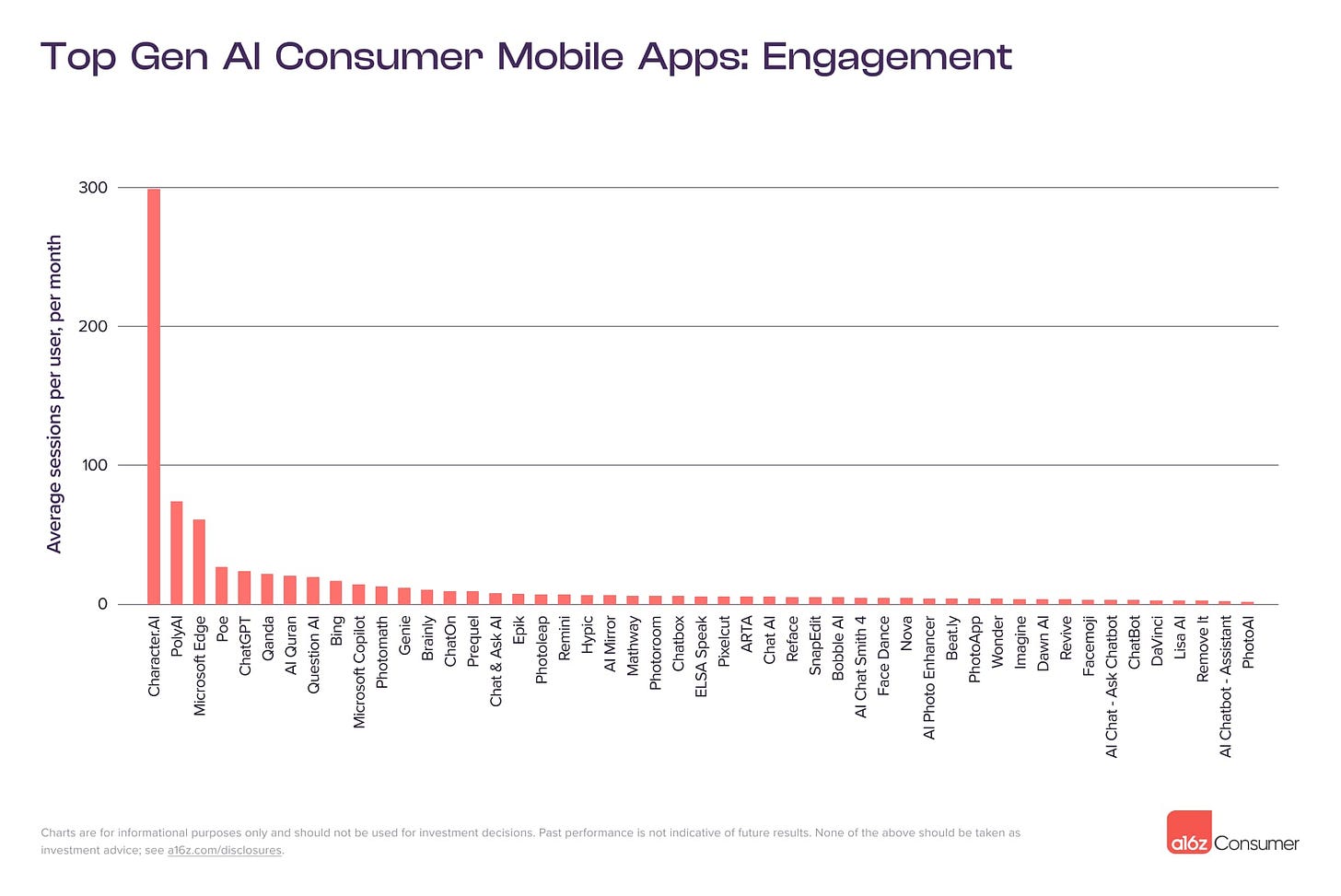AI Gets Emotional 🧠 Amazon's Big AI Gamble 💸 AI agents: New Digital Employees? 🤖
OpenAI Courts Hollywood & Big Tech Wants to Write Your News
Welcome to the biggest headlines in AI this week. Love it? Subscribe here!
In today’s edition:
SORA: Next Gen Video Creation
Microsoft and OpenAI Plan Massive $100B AI Data Center
How Do You Feel? - Empathetic AI Can Tell
AI Consumer Apps Are Becoming Mainstream
AI Agents: The Next Frontier Of AI
Big Tech and Legacy Media: An Unlikely Alliance
Amazon Joins The Race with $150B investment
Tantalising Quick Bytes
SORA: Next Gen Video Creation
OpenAI’s new SORA AI generates incredible videos from simple text prompts. The technology is still in development, but it will revolutionise everything from filmmaking to educational content.
OpenAI is actively courting Hollywood studios and giving artists early access to the tool to build excitement and explore possibilities.
Why it matters: SORA represents a breakthrough in video AI creation. If OpenAI can make it fast, reliable, and affordable, the potential is vast: custom video footage at your fingertips, immersive learning experiences, and powerful new tools for researchers across disciplines.
The costs: Creating a minute of video with SORA likely costs about US$0.40 today. However, this will drop significantly.
In a year, it’s expected to reach US$0.10 per minute, and in three years, potentially just US$0.01 per minute. This would make AI videos accessible to everyone.
🎥 OpenAI's artist-in-residence videos
🎬 Explorations of space/time - Hyperlapse video
📰 In-depth article on how SORA works
Microsoft and OpenAI Plan Massive $100B AI Data Center Project
Microsoft and OpenAI are reportedly collaborating on a multi-phase data center project, aimed at building powerful AI supercomputers.
The initial cost is estimated at $100 billion, with the potential to exceed $115 billion over time. This ambitious project could launch as early as 2028 with an advanced supercomputer named “Stargate.”
Why it matters: The rapid growth of generative AI demands specialised, high-performance data centres. This project highlights the immense investment required for AI dominance and signals a new era of computing infrastructure designed to power cutting-edge AI models.
📰 Microsoft, OpenAI plan $100 billion data-center project
How Do You Feel? - Empathetic AI Can Tell
Hume AI, a company pioneering AI designed to understand and respond to human emotions, has secured $50 million in funding.
Their new Empathic Voice Interface (EVI) aims to revolutionise how we interact with technology through emotionally aware, natural-sounding AI voices. This technology promises to transform areas including customer service, healthcare, and user experience.
Why it matters: Traditional AI voice assistants often feel unnatural and frustrating. Hume AI's technology has the potential to create more engaging, human-like interactions with AI, opening the door to innovative applications and improved user experiences across industries.
📞 Try it now - No sign-up required
AI Consumer Apps Are Becoming Mainstream
A recent analysis by Andreessen Horowitz, posted March 13, 2024, found that over 40% of the top web-based AI products are less than six months old. AI companions are exploding in popularity, transforming our relationships and how we work.
New categories like AI-powered music generators (Suno) and productivity tools (Liner, Eightify) are also on the rise.
Why it matters: This surge of new AI products signals a massive shift in how we interact with technology. AI is transforming workflows, entertainment, and even our relationships, with profound implications for businesses and individuals alike.
AI Agents: The Next Frontier Of AI
AI agents are the next major evolution in artificial intelligence. Imagine a mini-employee within your computer – instead of just providing a single answer, AI agents can plan, execute complex tasks, and refine their results.
This technology has the potential to reshape industries, automate tedious work, and boost the global economy. But there's a catch: AI agents are complex and don't work reliably yet, causing both scientific and product development challenges.
Why it matters: AI agents promise to transform how we work and solve problems. The company that successfully develops reliable AI agents stands to make billions and usher in a new era of productivity.
📰 In-depth article on what Agents are
📝 OpenAI's new assistants API aims to unlock Agents
Big Tech and Legacy Media: An Unlikely Alliance
Google is developing an AI tool called Genesis that can automatically write news articles, pitching it to media giants – but they're not the only ones.
Apple is also working on news-related AI and seeking partnerships with major publishers to gather data. This raises concerns about the future of journalism in an AI-driven landscape.
Why it matters: The race is on for tech giants to control how news is written and distributed in the future. This could have a double-edged impact. News organisations may be able to reduce costs and journalists could be freed up to focus on more in-depth reporting and investigations.
However, the amount of AI-generated content online will balloon, potentially creating a negative feedback loop where AI feeds on itself. This raises concerns about the homogenisation of content and the spread of misinformation.
Experts estimate that as much as 90% of online content may be synthetically generated by 2026. As AI-generated media becomes more sophisticated, it will become increasingly difficult to distinguish between what's real and what's not.
This could erode trust in legitimate news sources and make it harder for people to make informed decisions.
Disinformation campaigns could become even more pervasive and effective, as bad actors exploit AI to create realistic-looking videos and articles that spread lies.
People will need to develop new critical thinking skills to navigate this increasingly complex information landscape.
📰 Article on Genesis by the New York Times (paywall)
📝 90% of Online Content Will Be AI-Generated by 2026
Amazon Joins The Race: $150B in Data Centers & Partners With AI Startup Anthropic
Amazon plans to spend $150 billion on data centers over the next 15 years, fuelling AI growth, and solidifying its cloud dominance.
The company also just made its largest-ever external investment, putting $2.75 billion into AI startup Anthropic. This partnership highlights Amazon's commitment to competing with rivals like Microsoft in the booming AI space.
Why it matters: AI's massive computing requirements make data centres essential. Amazon's investment, along with its strategic partnership with Anthropic, signals its determination to lead the AI revolution and expand its cloud services dominance.
📰 Article about the $150B investment
Quick Bytes
Light 01 is an open-source voice interface for your computer - Click here
Biden orders every US agency to appoint a chief AI officer - Click here
Google DeepMind: A generalist AI agent for 3D virtual environments - Click here
Indian autonomous car startup solves driving in chaotic environments- Click here
AI chat is not always the answer - Click here
Which enterprise models are still being used (very interesting) - Click here
Databricks announced DBRX, a new standard for open-sourced LLMs - Click here
Grok 1.5 was just released (on par with GPT-4) - Click here









